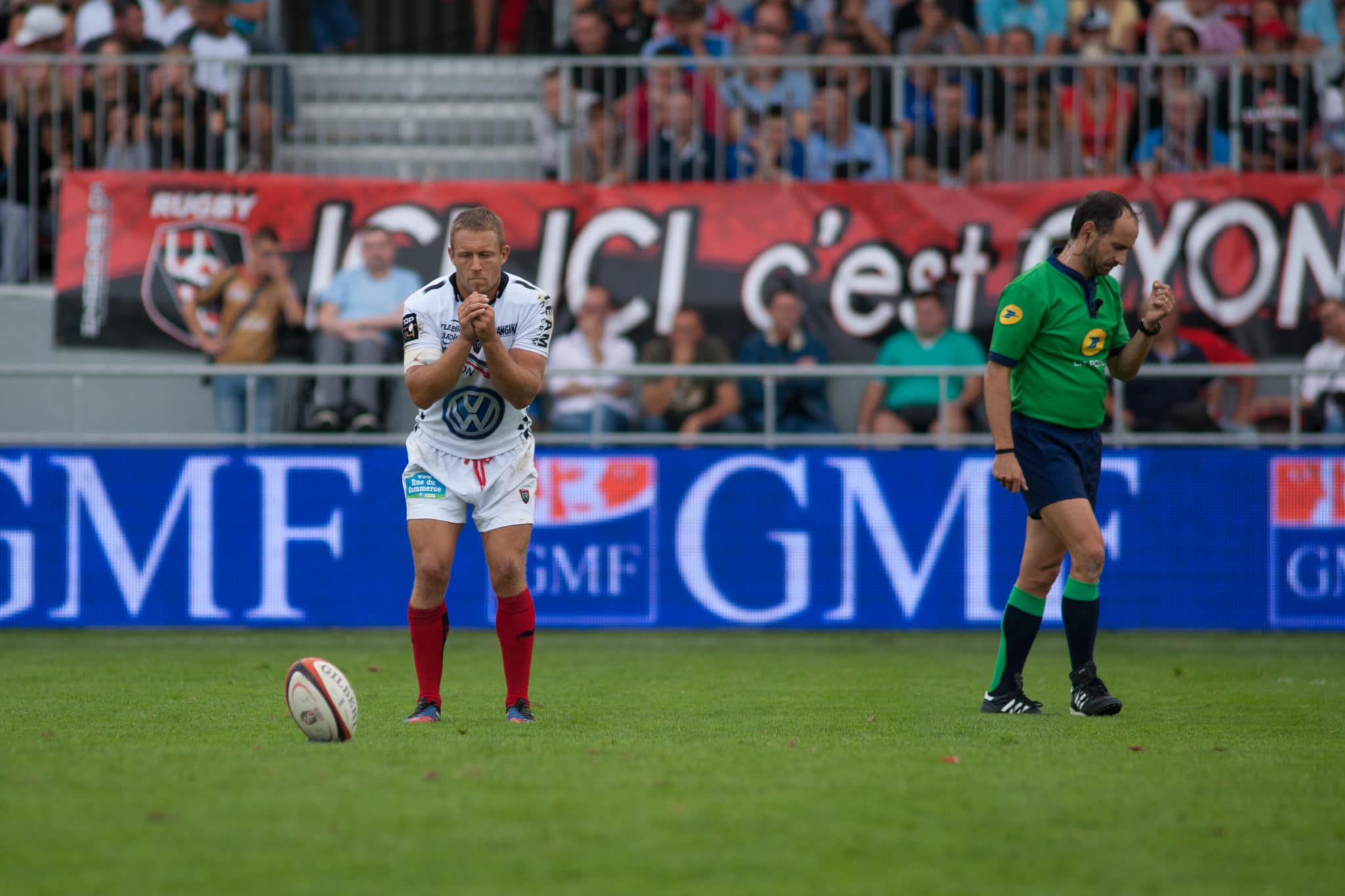Photo: “Jonny Wilkinson preparing to kick” **
Pre-performance routines – what’s all the fuss about?
By: Neha Malhotra
A key element of elite athletes’ performance is their ability to maintain high levels of concentration, especially for self-paced skills such as rugby kicking.
Athletes use an array of concentration techniques, including the setting of performance goals, mental practice, and pre-performance routines (PPRs).
In The Psychology of Concentration in Sports Performance: A Cognitive Analysis, psychologist Aidan Moran defined a Pre-performance routine as ‘a sequence of task-relevant thoughts and actions which an athlete engages in systematically prior to his or her performance of a specific sports skill’.
Pre-performance routines can be distinguished from superstitious behaviour, which is a mere compulsive action that doesn’t necessarily serve a purpose, or isn’t rational. Pre-performance routines, on the other hand, are functional as they help athletes calm their nerves and concentrate on factors that are within their control.
Jonny Wilkinson, undoubtedly one of the best goal kickers in rugby with an impressive 169 conversions to his name, had a unique Pre-performance routine. Wilkinson described the few seconds before a kick saying, “I call for the tee, get it on, set the ball up and then I’m into a routine”.
His Pre-performance routine involved him clasping hands as if praying. But according to Wilkinson, he saw it as a barrier sheltering him from jeering crowds and the feeling of his heart racing.
“Japan fullback Ayumu Goromaru ‘s kicking preparation is inspired by Jonny Wilkinson”
Sport psychology researchers have tested the effectiveness of behavioural (i.e., related to actions) and cognitive (i.e., related to thoughts) routines in a variety of sports, including basketball, golf, ice hockey, volleyball, water polo, ten-pin bowling, and rugby. Overall this research suggests that Pre-performance routines are effective.
Behavioural aspects of Pre-performance routines are actions such as practice swings in golf, bouncing the ball before a basketball free-throw, or glances at the posts before a rugby kick. Cognitive aspects of Pre-performance routines include mental imagery, self-talk with focus words, motivational self-talk, and focusing on the target.
Most Pre-performance routines are likely to include a combination of behavioural and cognitive routines. ‘Centering’ is one such method developed to induce physical and mental balance.
It comprises of an athlete taking a deep breath all the way into the abdomen while being aware of muscle tension and consciously attempting to relax the muscles during exhalation. The purpose of centering is to reduce physiological arousal (i.e., tenseness, sweaty palms, butterflies in the stomach, etc) and cut out distractions.
It aims to focus on the breath as opposed to external distractors, such as jeering crowds. Previous research has shown that centering can enhance performance in basketball in terms of free-throw percentage and improve hockey goaltenders’ save percentage when used in combination with self-talk. Jonny Wilkinson is said to have added the centering technique to his routine as his career progressed.
Certainly, Wilkinson is not the only rugby player who altered his routine. Dan Biggar is said to have toned down his routine after Welsh fans dubbed it ‘The Biggarena’ due to its uncanny resemblance to the dance of the popular 1990s Los del Río hit Macarena.
This raises questions about whether it is important to maintain the same routine throughout one’s career, and to stay consistent within a particular routine. In the next blog, we’ll take a look at what the research says about Pre-performance routines consistency.
** Photo Credit : By Fanny Schertzer – Own work, CC BY 3.0, https://commons.wikimedia.org/w/index.php?curid=28690561

She is a Postdoctoral Research Fellow at Nanyang Technological University and an Honorary Research Associate at the University of Waikato, New Zealand.
You can follow her @Nayhamal on twitter.
this is from a series of articles Neha Malhotra is writing for Asia Rugby
Dr Neha First Article
https://www.asiarugby.com/2018/05/23/choking-under-pressure/


